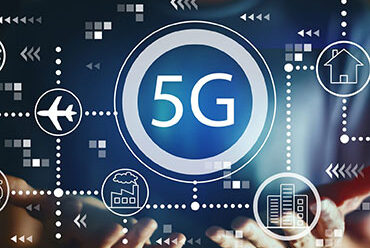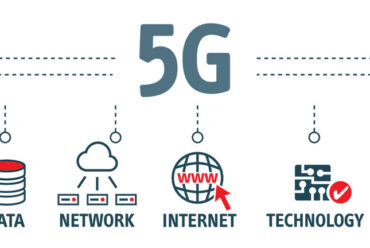5G and Its Role in the Electric Vehicles (EV) Sector
We live in an age where we see extraordinary leaps in technology every day. The global introduction of 5G is another one of these technological advancements that will likely impact many different industries and how they work.
The role of 5G in the electric vehicles (EV) industry is profound. 5G connected cars are the future of all cars because of the way that 5G will improve the overall performance, control, and analysis of car production, charging, and safety. 5G will also change the way that we experience driving, and bring us a step closer to autonomous vehicles.
Let’s take a look at the different ways in which the introduction of 5G will impact the EV sector:
Production
EVs are already on the rise, and the introduction of 5G in EV production will draw even more investment to the industry to the point where EVs might be the norm in just a few short years. EVs are already attracting a lot of investment, and the introduction of 5G would mean easier production, a better launch speed, and a higher return on investments. This might be enough to move both consumers and investors away from fossil-fuel-powered cars and make the shift entirely to EVs.
Charging
The biggest concern regarding EVs currently is the pitfalls in charging. The infrastructure required for charging and running EVs is not as advanced and widespread as it needs to be for everybody to make the switch from fossil-fuel cars to electric vehicles.
While some countries have introduced charging stations, underdeveloped places and most of the rest of the world is lagging behind. 5G would certainly facilitate the use of infrastructure meant to support the deployment of electric vehicles, such as recharge stations.
5G could potentially reduce latency in charging by over 50% and help orchestrate chargers in real-time so that they can balance the load needed to charge different vehicles. For example, a charging station with multiple cars charging could prioritize the charging of the car with the lowest battery percentage.
5G Safety Features
5G would greatly impact how vehicle safety and driving are viewed. 5G will facilitate Vehicle-to-everything (V2X) connectivity. This means that with the use of 5G, traffic signals and other road infrastructure would be able to communicate directly with the vehicles, and the vehicles would be able to communicate with other vehicles and pedestrians too. This can go a long way in reducing the risk of accidents and helping with traffic congestion.
Your driving experience would be greatly improved, and safety would hardly be a concern. 5G would give you real-time data on vehicle location, surrounding vehicle driver behavior, engine diagnostics, and vehicle activity. This will cut down the risk of vehicle malfunction going unnoticed or any engine faults being ignored.
5G Parts Procurement
5G Parts Procurement is a leading company in the procurement of 5th generate mobile network technology. We are sure to see a greater impact of 5G in the coming years across multiple industries, and when that happens, our electronic parts company will be ready and available to help you locate hard-to-find electronic parts.
It’s said that 5G will improve many industries, but the latest wireless technology network may also create entirely new industries. In the way that 1G delivered analog voice, 2G brought us email, 3G brought us mobile data, and 4G showed us the possibility of intelligent car features, 5G will likely bring us advancements we have yet to imagine.
Get in touch with 5G Parts Procurement on our website https://www.5gpartsprocurement.com/ for more information on the parts that we provide, or send us a message at [email protected]. You can also call us at (800) 226-6960 for any questions you may have.
Final Thoughts
5G-connected cars and electric vehicles are the auto industry’s future. With the introduction of widespread 5G, we can look forward to an improved overall user experience and a change in the way that we think of and experience driving. We can look forward to smarter, more connected vehicles requiring less driver input.
5G and V2X connectivity may soon lead to fossil-fuel cars becoming obsolete as electric vehicles become smarter and more widely produced, and the infrastructure needed to run them becomes better integrated. 5G safety features will also be a big selling point.
With the introduction of 5G in the EV sector, we move ever closer to the futuristic – but likely soon achievable – idea of a fully autonomous vehicle. Not only will the cars themselves evolve and become more efficient, but the other industries related to the auto industry will also change to match.





